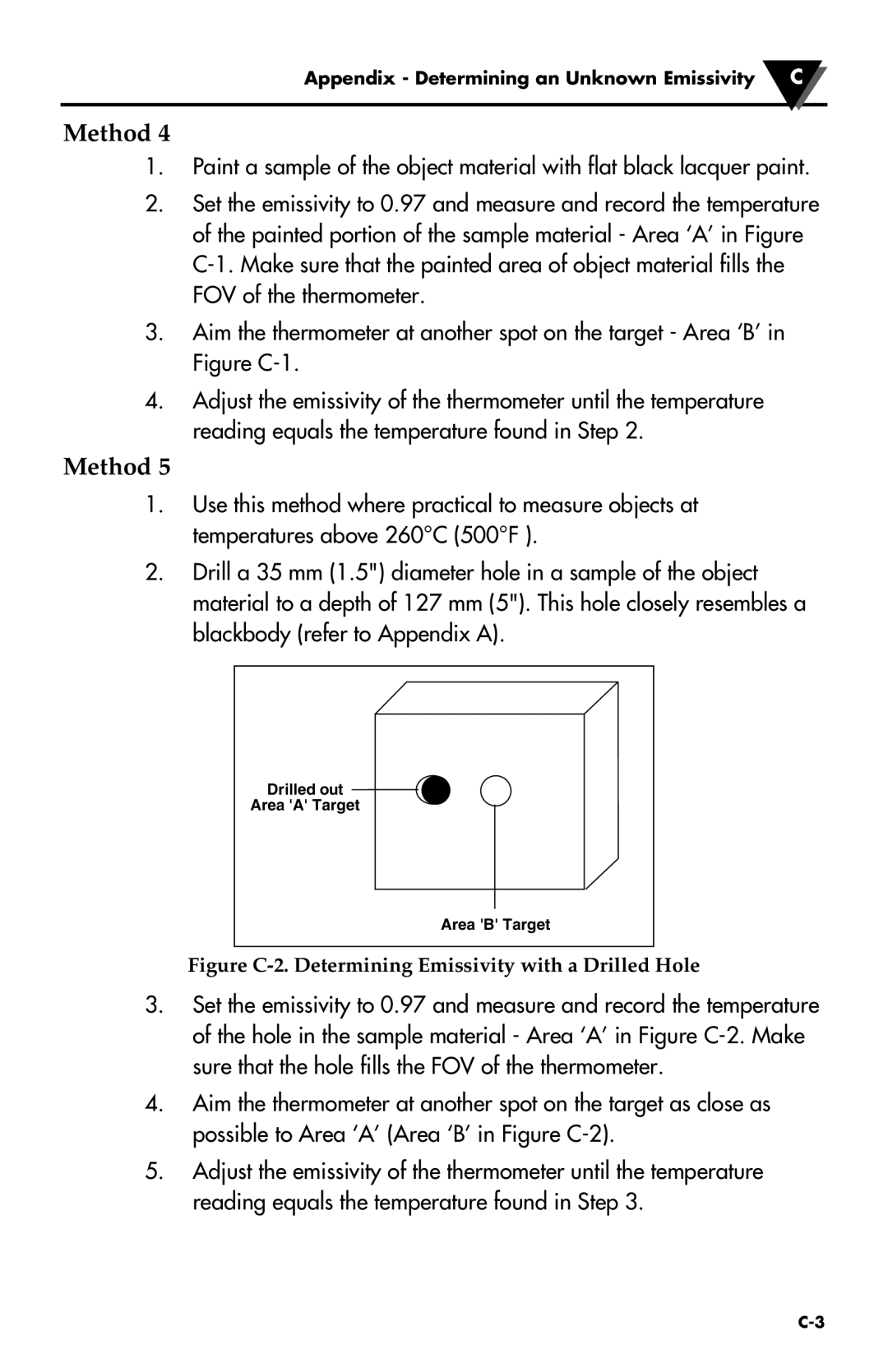
Appendix - Determining an Unknown Emissivity C
Method 4
1.Paint a sample of the object material with flat black lacquer paint.
2.Set the emissivity to 0.97 and measure and record the temperature of the painted portion of the sample material - Area ‘A’ in Figure
3.Aim the thermometer at another spot on the target - Area ‘B’ in Figure
4.Adjust the emissivity of the thermometer until the temperature reading equals the temperature found in Step 2.
Method 5
1.Use this method where practical to measure objects at temperatures above 260°C (500°F ).
2.Drill a 35 mm (1.5") diameter hole in a sample of the object material to a depth of 127 mm (5"). This hole closely resembles a blackbody (refer to Appendix A).
Drilled out
Area 'A' Target
Area 'B' Target
Figure C-2. Determining Emissivity with a Drilled Hole
3.Set the emissivity to 0.97 and measure and record the temperature of the hole in the sample material - Area ‘A’ in Figure
4.Aim the thermometer at another spot on the target as close as possible to Area ‘A’ (Area ‘B’ in Figure
5.Adjust the emissivity of the thermometer until the temperature reading equals the temperature found in Step 3.
